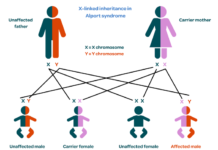Work-life balance is the concept of balancing one’s professional and personal life, to achieve a sense of well-being and happiness. It is the equilibrium between the demands of work and personal life, where both areas receive adequate attention and effort. In this essay, we will discuss the importance of work-life balance and how it can be achieved.
Firstly, work-life balance is essential for maintaining good physical and mental health. Overworking can lead to burnout, stress, and various health issues such as hypertension, heart disease, and depression. Therefore, having adequate time for rest, exercise, and leisure activities is crucial for maintaining good health. It also improves productivity and enhances job satisfaction, leading to better work performance.
Secondly, achieving work-life balance can strengthen personal relationships. Spending quality time with family, friends, and loved ones is essential for maintaining healthy relationships. It creates a sense of belonging, strengthens communication, and enhances emotional bonding. Additionally, it allows individuals to engage in social activities, participate in hobbies, and pursue personal interests, which can improve overall life satisfaction.
Thirdly, work-life balance can improve job satisfaction and reduce employee turnover rates. Employees who have a good work-life balance are more likely to be engaged and satisfied with their work. This leads to increased motivation and better job performance, which benefits both the employee and the employer. Moreover, it reduces employee turnover rates, which saves time and resources spent on hiring and training new employees.
To achieve work-life balance, it is important to set clear boundaries between work and personal life. This can be achieved by prioritizing and scheduling tasks, delegating responsibilities, and learning to say no to work-related demands that conflict with personal commitments. It is also important to establish healthy habits such as regular exercise, adequate sleep, and healthy eating, which can help to manage stress and maintain good health.
Additionally, organizations can also play a significant role in promoting work-life balance. This can be achieved by offering flexible work schedules, remote work options, and providing access to wellness programs and resources. Employers can also encourage employees to take time off and prioritize their personal life, which can lead to better employee retention and job satisfaction.
In conclusion, work-life balance is essential for maintaining good health, personal relationships, and job satisfaction. It requires a conscious effort to balance the demands of work and personal life, and setting clear boundaries between the two. Achieving work-life balance benefits both individuals and organizations, leading to improved well-being and productivity.












































